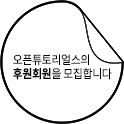Pointers and Function Arguments
Since C passes arguments to functions by value, there is no direct way for the called function to alter a variable in the calling function. For instance, a sorting routine might exchange two out-of-order elements with a function called swap. It is not enough to write
swap(a, b);
where the swap function is defined as
void swap(int x, int y) /* WRONG */
{
int temp;
temp = x;
x = y;
y = temp;
}
Because of call by value, swap can’t affect the arguments a and b in the routine that called it. The function above only swaps copies of a and b.
The way to obtain the desired effect is for the calling program to pass pointers to the values to be changed
swap(&a, &b);
Since the operator & produces the address of a variable, &a is a pointer to a. In swap itself, the parameters are declared to be pointers, and the operands are accessed indirectly through them.
void swap(int *px, int *py) /* interchange *px and *py */
{
int temp;
temp = *px;
*px = *py;
*px = temp;
}
Pictorially:

Pointer arguments enable a function to access and change objects in the function that called it.
[The C Programming Language p.95-96]


